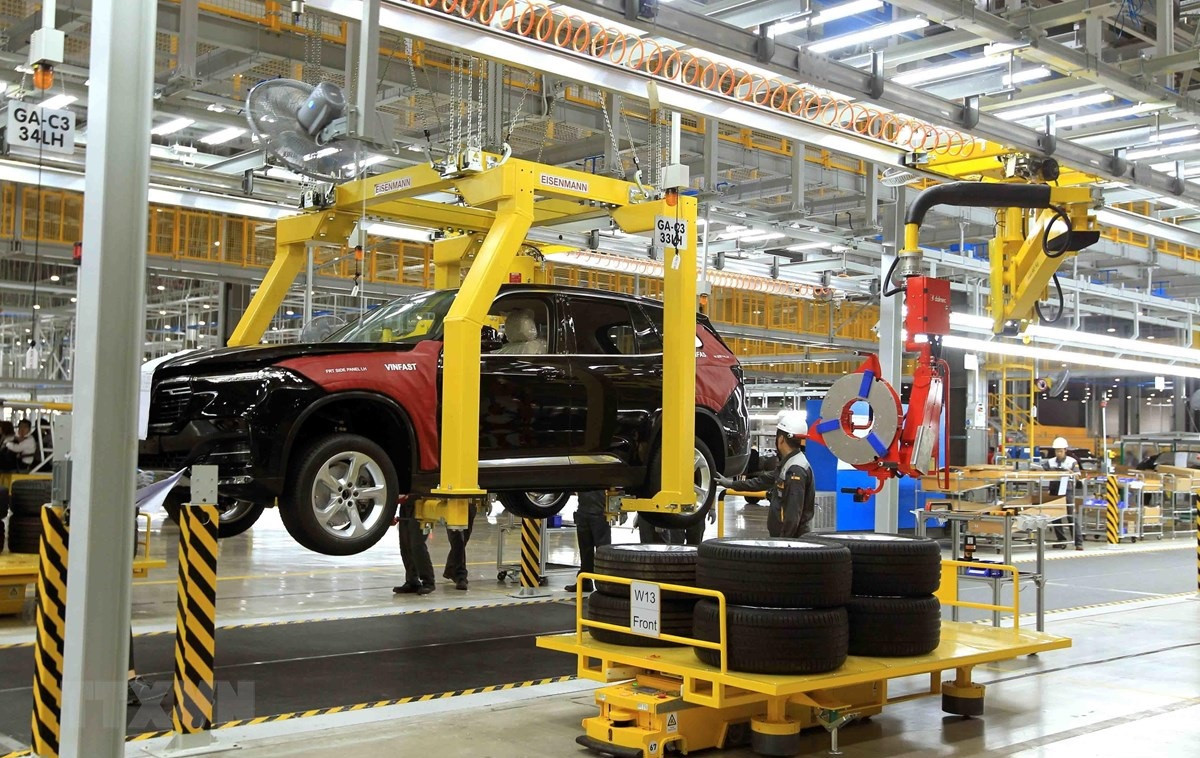
The latest report from the Vietnam Automobile Manufacturers Association (VAMA) reveals a decline in the total automotive market in April, with a consumption of 24,350 vehicles of all types, marking a nearly 11% drop compared to the previous month.
While commercial and specialized vehicles experience growth in sales by 15% and 21% respectively, the passenger car segment, with 17,258 units sold, records a 9% decline compared to March figures.
Of significant note is the prominence of imported cars (CBU) in April, surpassing domestically assembled cars (CKD) in terms of consumption. CKD car sales totaled 11,983 vehicles, while CBU cars saw a consumption of 12,367 units, marking a departure from the typical trend where CKD cars dominate the market.
The ascendancy of imported cars is primarily attributed to their allure among domestic consumers. Notably, four out of the top ten best-selling car models in Vietnam last month were completely imported from abroad, including Toyota Yaris Cross, Mitsubishi Xforce, Toyota Innova Cross (all from Indonesia), and the Ford Everest from Thailand.
Even models available in both CKD and CBU forms secured top spots in sales charts, such as the Mitsubishi Xpander, Ford Ranger, and Honda CR-V. Mitsubishi Xpander, the best-selling model for two consecutive months, primarily saw sales from CBU units, with nearly 88% of its sales attributed to imports from Indonesia.
The anticipation of reduced import taxes, particularly from countries in Southeast Asia, is a driving force behind the popularity of imported cars. As a result, it is likely that cars from Europe and Japan will flood the Vietnamese market in the coming years as free trade agreements take effect, further challenging the position of domestically assembled vehicles.
While assembled vehicles in Vietnam face the threat of losing market share, the domestic auto assembly industry remains resilient, with renowned brands like Hyundai, Toyota, Kia, Mazda, Ford, Honda, BMW, and Mercedes-Benz maintaining their presence. Moreover, upcoming ventures such as Chery's Jaecoo and Omoda brands alongside BYD's plan to establish assembly plants in Vietnam signal continued investment and competition in the market.
In conclusion, the competition between imported and domestically assembled vehicles presents opportunities for the Vietnamese automotive market. Consumers stand to benefit from reduced import taxes, narrowing the price gap between CKD and CBU cars. Furthermore, this competition is expected to drive improvements in the quality of vehicles offered by both segments.
As for CKD vehicles in Vietnam, the anticipated 50% reduction in registration fees is poised to come into effect later in 2024, boosting domestic car purchases and revitalizing the Vietnamese automotive market after a sluggish start to the year.
PV